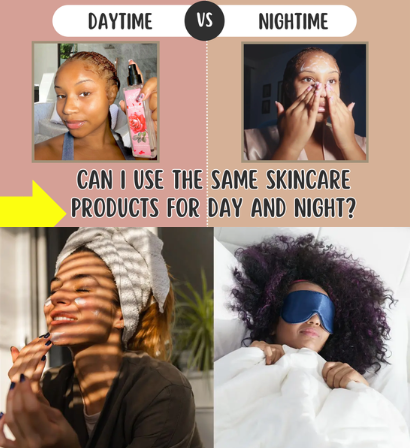
Moisturizer is the backbone of any skincare routine, but here’s something most people don’t realize—your skin doesn’t need the exact same thing during the day as it does at night. That’s why many brands offer separate “day” and “night” moisturizers. But are they really different, or just clever marketing? Let’s break it down so you know how to hydrate your skin smarter, not harder.
Why Moisturizer Matters Around the Clock
Your skin barrier works 24/7. During the day, it’s constantly battling UV rays, pollution, and stress from the environment. At night, the focus shifts to repair and regeneration. Moisturizers support these natural rhythms by giving your skin what it needs at the right time. Think of it like fueling your body—you don’t eat the same thing before a workout as you do before bed, right?
The Role of Daytime Moisturizers
Day moisturizers are designed to protect and defend. They’re usually lighter in texture so they sit comfortably under makeup or sunscreen. The main goals of a day cream are:
- Hydration without heaviness: Lightweight gels or lotions prevent shine and keep skin fresh.
- Protection from UV damage: Many day creams include SPF to guard against harmful rays.
- Antioxidants for defense: Ingredients like vitamin C, green tea, and niacinamide help fight pollution and free radicals.
- Oil control: For oily or combination skin, day moisturizers often balance hydration without clogging pores.
In short, your day moisturizer acts like a shield, keeping your skin safe while you’re out and about.
The Role of Nighttime Moisturizers
At night, your skin goes into repair mode—it’s like your body’s natural “maintenance shift.” That’s why night moisturizers are richer, heavier, and packed with restorative ingredients. Their main goals are:
- Deep hydration: Thick creams or balms restore lost moisture.
- Repair and renewal: Retinol, peptides, and ceramides work overnight to rebuild skin.
- Barrier strengthening: Fatty acids and nourishing oils support healing.
- Evening out tone: Ingredients like glycolic acid or niacinamide target discoloration while you sleep.
Your night cream is less about protection and more about helping your skin bounce back stronger by morning.
Video : Morning vs Nighttime Skincare Routine: Which is BETTER?
Key Differences Between Day and Night Moisturizers
Here’s a quick comparison:
- Texture: Day = light, fast-absorbing. Night = rich, heavy, occlusive.
- SPF: Day creams often include it, night creams never do.
- Actives: Night creams contain more powerful anti-aging or exfoliating ingredients like retinol.
- Purpose: Day = defense. Night = repair.
Using the wrong one isn’t harmful, but it means your skin isn’t getting the best support for the time of day.
Do You Really Need Both?
This depends on your skin’s needs and lifestyle. If you’re young, have balanced skin, and prefer a simple routine, one good moisturizer may be enough—as long as you always use sunscreen during the day. But if you’re targeting concerns like aging, dullness, or barrier damage, having separate day and night formulas helps maximize results.
Think of it like having different shoes for running versus sleeping—you could use the same pair, but why compromise?
How to Choose the Right One for Your Skin
- For day: Pick something lightweight with SPF if you spend time outside. Look for antioxidants if you live in a city.
- For night: Choose a richer cream with repairing ingredients. Retinol for anti-aging, ceramides for barrier support, or peptides for firmness.
- For sensitive skin: Stick to fragrance-free, soothing formulas both day and night.
Your choice should depend less on trends and more on what your skin actually needs.
Video : Day and Night Skin Care Routine || Indian Skin Care
Conclusion
Day and night moisturizers aren’t just marketing tricks—they really do serve different purposes. During the day, your skin needs lightweight hydration and protection from environmental stressors. At night, it craves deeper nourishment and repair. While one moisturizer can technically work for both, using specialized formulas can give your skin the extra care it deserves. If glowing, healthy skin is the goal, treating your skin according to its daily rhythm is the smartest way to get there.


